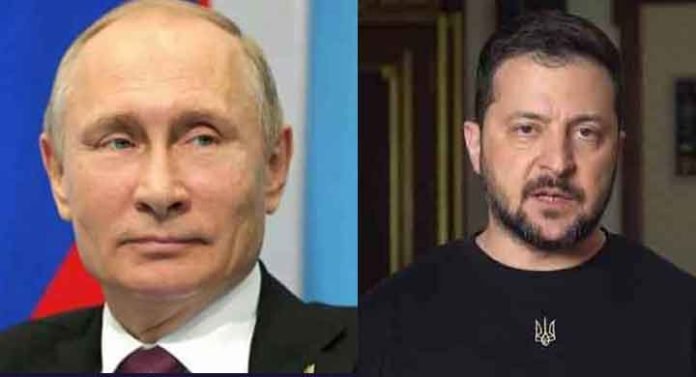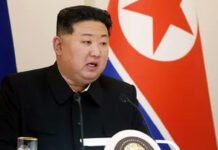Kyiv, November 2, 2025 — Ukrainian forces launched a precision strike on a major Russian fuel pipeline near Moscow early Sunday, marking one of the boldest cross-border attacks of the conflict so far. The strike, which Russian officials said caused “localized fires and temporary fuel disruptions,” underscores the intensifying energy warfare between the two countries as winter approaches.
The pipeline, part of the fuel supply network feeding military and civilian facilities in western Russia, reportedly suffered significant damage. Russian emergency services said they had contained the fire after several hours, though supply interruptions were expected in parts of the Moscow region.
“This was a message that Russia’s energy dominance is no longer untouchable,” said a Ukrainian defense official speaking on condition of anonymity.
🔥 What Happened
According to Russian media reports, explosions were heard near Kolomna, about 110 kilometers southeast of Moscow, around 3:00 a.m. local time. The blast caused a section of the Transneft oil distribution system to ignite, forcing authorities to shut down the flow in one segment.
Moscow regional governor Andrei Vorobyov confirmed “a drone attack targeting energy infrastructure,” adding that no casualties were reported. He said local firefighting crews “acted promptly to prevent escalation.”
In Kyiv, Ukrainian military intelligence (GUR) did not claim direct responsibility but hinted at ongoing “strategic operations against Russian military logistics.”
“Any infrastructure fueling the war machine is a legitimate target,” said Andriy Yusov, a spokesperson for Ukraine’s GUR.
⚙️ Russia’s Response: ‘Terrorist Attack’
Russia’s Ministry of Defense accused Ukraine of launching long-range drones into Russian territory and vowed to retaliate.
“These are terrorist acts intended to disrupt civilian life in Russia,” said Defense Ministry spokesman Igor Konashenkov. “Our forces will respond proportionally.”
In Moscow, fuel supply stations were ordered to tighten security protocols, and Transneft said engineers were working to reroute supplies through backup lines to avoid shortages.
Energy analysts in Moscow admitted that while the physical damage appeared “manageable,” the psychological impact was far greater.
“This proves Ukraine can now strike deeper and more accurately than ever before,” said Sergei Markov, a former Kremlin advisor. “That changes the calculus for Russia’s energy defenses.”
⚡ Ukraine’s Retaliation for Energy Strikes
The attack comes after a week of intensified Russian missile barrages on Ukraine’s own power grid, which left millions of Ukrainians facing blackouts and heating shortages.
Ukraine’s President Volodymyr Zelenskyy accused Moscow of pursuing “energy genocide” aimed at breaking civilian morale.
“Every transformer, every substation destroyed in Ukraine brings us closer to striking back at the sources of Russian aggression,” Zelenskyy said in a televised address Saturday night.
Ukrainian officials have repeatedly stated that Russia’s energy facilities are dual-use targets, often linked to military operations or logistics fueling the front lines in eastern and southern Ukraine.
🧭 Strategic Implications
Military experts say this strike reflects Kyiv’s evolving long-range capabilities, possibly involving Western-supplied drones or indigenous strike systems. The distance from Ukraine’s borders to Moscow’s outskirts — roughly 500 kilometers — suggests advanced planning and precision.
“The era of impunity for deep-Russian targets is ending,” said Dr. Marina Kolesnik, a defense analyst at the London-based Royal United Services Institute (RUSI). “Ukraine’s strategy is shifting from pure defense to strategic deterrence.”
Analysts also note that the psychological effect of attacks near Moscow resonates strongly with the Russian public, who had long viewed the capital as insulated from the front lines.
“This is about undermining the illusion of security in the Russian heartland,” Kolesnik added.
💰 Energy and Economic Fallout
The strike immediately affected fuel futures and energy markets, with Brent crude prices briefly rising above $90 per barrel on fears of wider disruptions to Russian exports.
Energy monitoring agencies reported temporary pressure drops in sections of the pipeline network supplying western Russia, though exports via major international routes like Druzhba remained unaffected.
Russia’s Energy Ministry said repairs could take “several days,” and authorities were considering rerouting domestic flows to maintain supplies in Moscow and nearby industrial zones.
Meanwhile, European traders expressed concern that Ukraine’s counter-energy campaign could trigger broader volatility in global fuel markets.
“Markets are jittery — a single major incident in Russia can ripple worldwide,” said Eleni Petros, energy analyst at S&P Global.
🌍 Global Reaction
Western leaders reacted cautiously. A US State Department spokesperson reiterated that Washington supports Ukraine’s right to defend itself, but declined to comment on specific operations inside Russia.
The European Union warned of “escalation risks,” even as officials acknowledged Russia’s continued attacks on Ukraine’s civilian energy network.
“If Russia stops bombing Ukraine’s energy infrastructure, these counterstrikes would not be necessary,” said EU foreign policy chief Josep Borrell.














